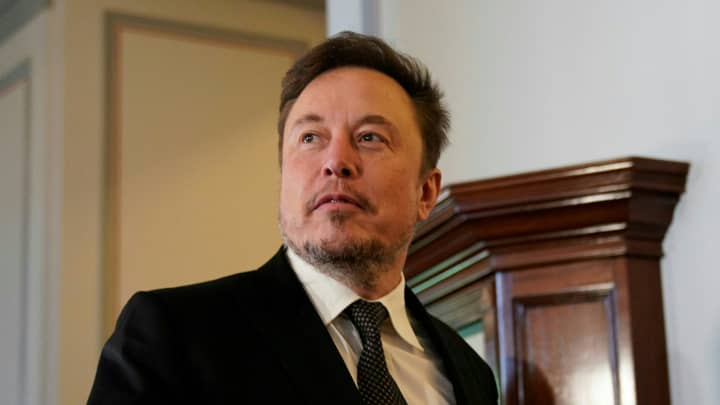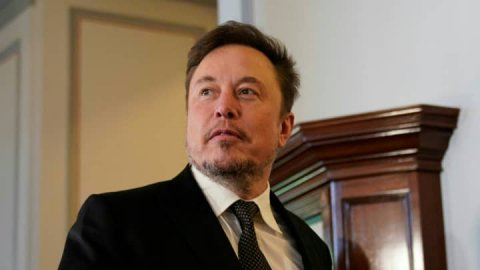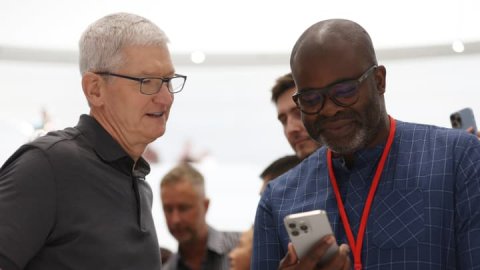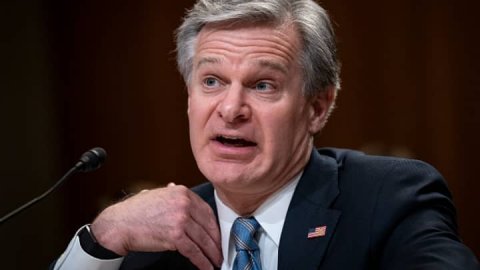
Elon Musk discussed his plans for Twitter, now called X, on Monday during a livestreamed conversation with Israeli Prime Minister Benjamin Netanyahu. Among other things, Musk said the social network is "moving to having a small monthly payment for use of the X system" in order to combat "vast armies of bots."
Musk did not say how much a new plan would cost users of the social network, or what other features would or would not be included with payment at the lowest tier.
During the livestream, Musk also divulged some new metrics from X, saying it now has 550 million "monthly users," who generate 100 million to 200 million posts per day.
Musk did not disclose how many of the company's monthly users are authentic, versus bots. He also did not make an apples-to-apples comparison with metrics previously used by Twitter. In May 2022, before Musk's takeover, that it had "average monetizable daily active usage" of 229 million.
The discussion with Netanyahu was meant to focus on theoretical risks of artificial intelligence technology, and how AI should potentially be regulated. However, Musk also used it to dispute the perception that his social network tolerates hate speech and antisemitism.
The meeting followed widespread criticism of Musk by civil rights groups over his amplification of bigotry on his social network, including antisemitic accounts, content and conspiracies.
In recent weeks, Musk has threatened to sue the Anti-Defamation League, a Jewish-led organization, alleging that they tried to "kill" his social network. Musk has blamed the ADL, rather than his own business decisions, for a 60% drop in revenue at X and said he had "no choice" but to file a defamation lawsuit against the group.
Musk and X Corp. have not yet filed any known lawsuit against the ADL, and did not immediately respond to a request for comment.
Before meeting with Netanyahu, Musk also accused George Soros' foundation of wanting to "destroy" Western civilization. The Hungarian-American Jewish philanthropist is the founder of Open Society Foundations, which donates to a variety of civil society groups, and he is the subject of several .
On his social media platform, Musk has repeatedly disparaged transgender people, federal regulators, politicians, journalists, whistleblowers, critics of his companies, and short sellers. Despite that history, Musk told Netanyahu on Monday, "I'm sort of against attacking any group, you know. Doesn't matter who it is." Referring to his goal of humanity becoming "a spacefaring civilization," he said, "We can't do that if there's a lot of infighting and, you know, hatred and negativity."
After acquiring Twitter for around $44 billion in late October, Musk implemented massive staff cuts and sweeping changes to the platform. He continues to run the company as its largest shareholder, chief technical officer and executive chairman, and also is the CEO of automaker and aerospace company SpaceX.
Among other changes, he gave "amnesty" to previously suspended accounts — a move that online safety and hate speech experts strongly criticized. Under his management, the platform restored the account of former President Donald Trump, who was previously banned by Twitter for encouraging the Jan. 6, 2021, Capitol insurrection. Musk's Twitter also restored the personal accounts of Rep. Marjorie Taylor Greene, R-Ga., and neo-Nazi website founder Andrew Anglin.
Musk also eliminated Twitter's "blue check" system of verification, which helped users to identify authentic accounts belonging to public figures including celebrities, elected officials, scientists, authors, leaders in business and education, working journalists and others.
Under the social network's current system, users who pay a fee can show a blue subscriber badge next to their names. Those who pay see their posts prioritized in other users' feeds. Those who don't pay are relegated to lower levels of amplification for their posts or may see lower engagement on the platform. On Monday, Musk repeated his belief that turning users into paid subscribers would make it cumbersome and unaffordable to deploy bots on the platform.
X is trying to obtain licenses to become a money transmitter across the U.S. currently. According to public records, it has already obtained permission to do so in 8 states.




